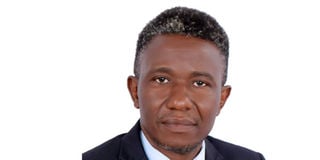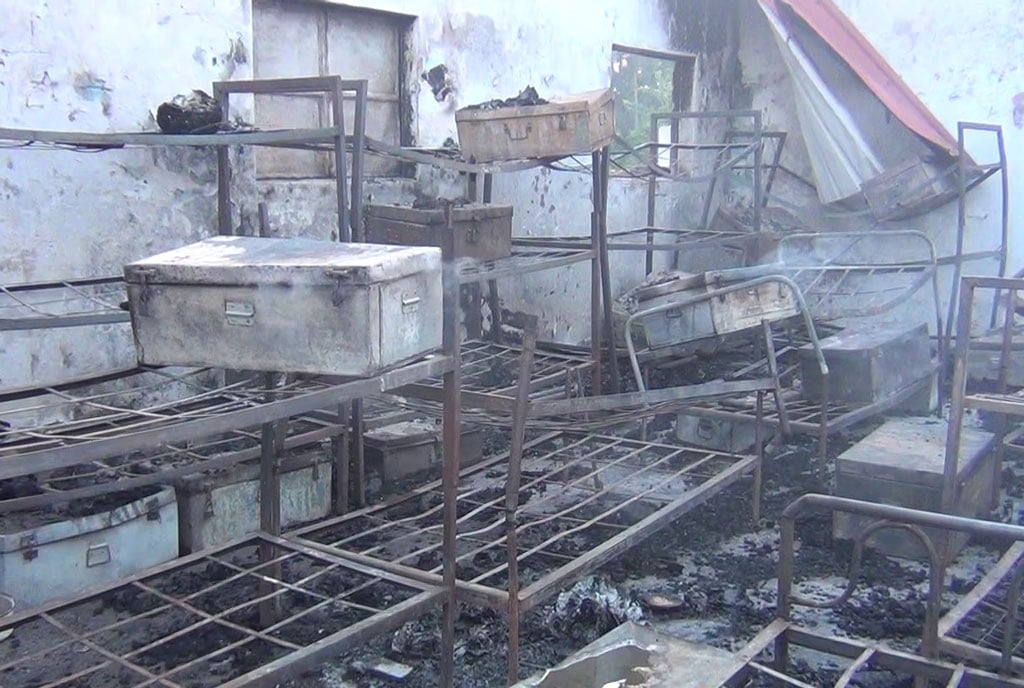Buganda: The first born busy playing omweso as thieves loot their home

Author, Gawaya Tegulle. PHOTO/FILE
What you need to know:
- On its part, Mbale had rioted with passion and imagination; but the third day was quiet. I looked up a few friends of mine who had been at the heart of the riots, expecting to see them bracing for a new wave of protests. I found four of them in a restaurant and asked them whether they were going to protest again.
Around November 20 or 21, I was in Mbale District, treading carefully, in the wake of the riots that shook the nation, following the arrest of presidential hopeful Bobi Wine, aka Robert Kyagulanyi.
On its part, Mbale had rioted with passion and imagination; but the third day was quiet. I looked up a few friends of mine who had been at the heart of the riots, expecting to see them bracing for a new wave of protests. I found four of them in a restaurant and asked them whether they were going to protest again.
The leader looked up from behind a huge chicken wing that he was munching on.
“We are waiting for a signal from Kampala,” he said, his mouth full of chicken, his face oily all over. Boy was enjoying himself. “If Kampala protests, we shall follow immediately.” The other chaps nodded, unable to talk, their mouths full.
Kampala didn’t protest again; so Mbale – and other areas kept mum. It is interesting that while Bobi was arrested in Busoga, the protests started in Kampala, and then spread elsewhere. In short, the heartbeat of Uganda is located in Buganda.
And that’s nothing new; since Uganda as a name of the State is a derivative from “Buganda,” arguably the greatest of the interlacustrine kingdoms by the time the British came and established a protectorate, with the help of Buganda.
The capital, Kampala, is in Buganda. At least 80 per cent of the economy is in Buganda. It has the largest voting population. Take Buganda out of the Ugandan equation, and you begin to understand how the word “problem” or “conundrum” is spelt. Buganda is, therefore, the first born of the Ugandan family; and when it speaks with one voice, the word “clout” around these parts takes on new meaning. And it’s the one region that, if it puts its foot down, the soldier boys that run the country fully appreciate that push has come to shove.
A few months ago, I had a long conversation with one of the Buganda elite, a gifted young man – John Ssempebwa – who was one of those crusading to have Kampala street names changed to remove traces of unpleasant side of the colonial legacy. Ssempebwa was the deputy of former Uganda Tourism Board (UTB) supremo, Stephen Asiimwe; two very gifted young men that transformed UTB into a recognisable brand.
I took exception to his project, arguing that Buganda elite really have more important things to do than that; prime among which is providing leadership at a time when the majority of Ugandans seek liberation of the country from the criminal enterprise that runs it.
I thought that Ssempebwa’s project nicely summed up the problem with Buganda: a first born busy doing everything, except what is right. Thieves are ravaging the home and raping the women, but the first born is busy playing omweso under the mango tree, occasionally pausing to sip away at a calabash of banana wine.
All of Uganda looks to Buganda for leadership. Buganda can singlehandedly vote Mr Museveni out of power.
Buganda can lead the crusade against political excesses and human rights abuses; but it seems content to look the other way, as long as its private interests at various centres of power are being sorted out and at election time, Buganda is a merchant of disappointment.
Buganda has become the Biblical trumpet that gives an uncertain sound, leaving people none the wiser as to what ought to be done. While Uganda has glaring problems, Buganda, or at least its leadership at Mengo, has managed to look inward, demanding for federalism “federo” and “ebyaffe”; rather than coming out, beyond all that, to articulate strategic solutions to Uganda’s problems.
The unwillingness of the President to relinquish power may sound clever and profitable to some people; but the unpleasant truth is that Uganda is seated on a time bomb that, when it goes off, will have serious repercussions and Buganda/Mengo should not think it will be safe, and it is the rest of the country that will suffer.
As we go into elections, will Buganda, our first born, finally do the right thing?
Mr Tegulle is an advocate of the High Court of Uganda [email protected]




